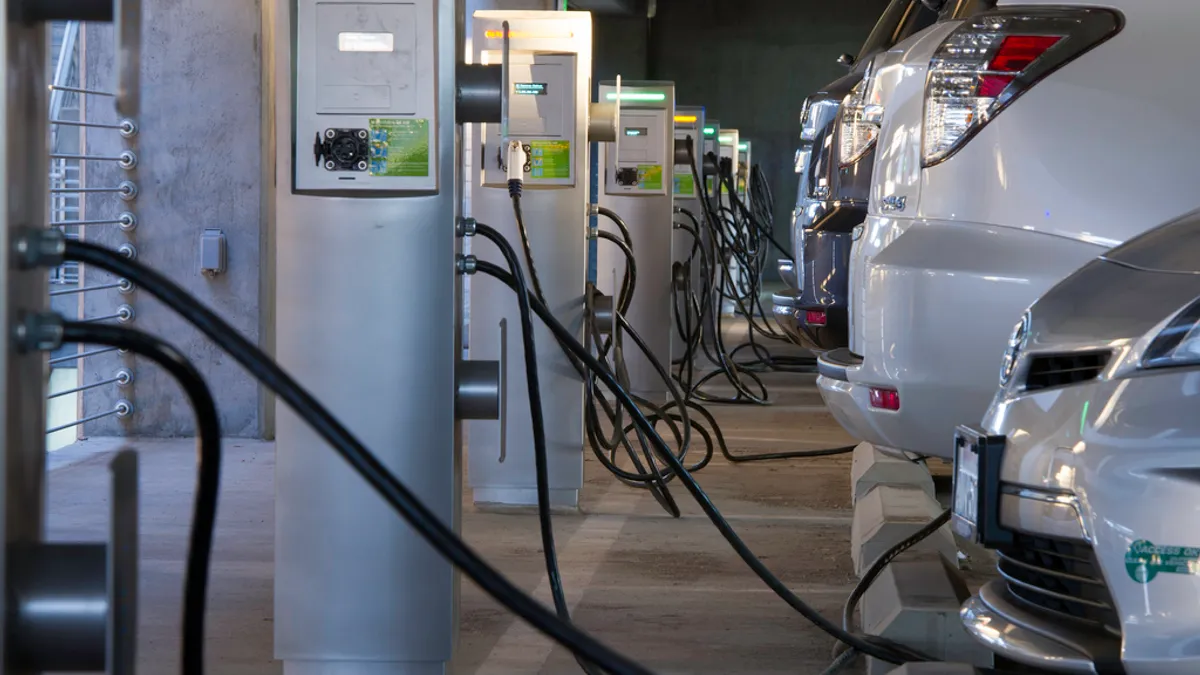Dive Brief:
- Kansas City Power & Light has announced plans to develop the largest electric vehicle charging network offered by a utility in the United States, with more than 1,000 proposed charging stations.
- The network, to be installed throughout the greater Kansas City, Mo., region, would be capable of supporting more than 10,000 electric vehicles, Smart Grid News reports.
- KCP&L said through partnerships with companies at host locations and with Nissan Motor, the Clean Charge Network will offer free charging for the first two years.
Dive Insight:
The proposed Clean Charge Network would be the largest in the country, and is designed to be sufficiently-dense to alleviate customers "range anxiety" — the idea that electric vehicles do not have sufficient batteries or charging options to make them viable options in some areas.
“We are committed to the electric vehicle industry and want to give residents and visitors the ability to join the electric vehicle revolution," said Terry Bassham, President and CEO of KCP&L and its parent company Great Plains Energy. "As a utility, we will place the stations where they’re needed most and support them as part of our electric grid, leveraging our expertise with electrical infrastructure."
The stations are manufactured by ChargePoint and will be part of the ChargePoint network of more than 20,000 charging spots in North America.
Kansas City is the largest auto manufacturing center in the United States outside of Detroit, which the utility said makes makes the region well suited to push the edge of technology and transportation. Along with KCP&L’s environmental upgrades at several local power plants, renewable energy portfolio and its energy efficiency programs, the KCP&L Clean Charge Network will reduce carbon emissions and help the Kansas City region attain EPA regional ozone standards.
Natural Resources Defense Council Senior Energy Economist Ashok Gupta said the utility's efforts to encourage the use of electric vehicles and modernize the electrical grid "are all critical parts of a sustainable energy future."
"More electric vehicles on the road means that people will be using more electricity during times when KCP&L already has enough generation and distribution capacity to meet their demand," Gupta said. "That means savings on electricity bills for everyone and cleaner air for everyone."














